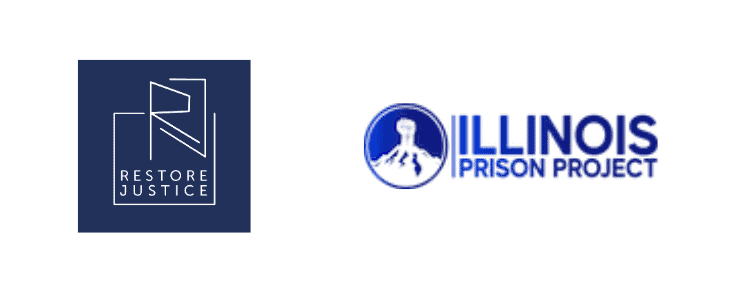
Updated April 27, 2020
Read our earlier recommendations here.
Our state must continue to expand and accelerate early prison releases throughout the COVID-19 pandemic.
Governor Pritzker must continue centralized early releases, expanding review to focus on anyone within 18 months of release, the terminally ill and disabled, and people over age 55 who are within 2 years of their release dates.
Governor Pritzker should issue additional executive orders to remove remaining administrative barriers to the awarding of good time credit (e.g. expand awards to 12 months, remove restrictions for 100-level offenses).
In addition to centralized review, Governor Pritzker can increase safety in prisons by directing wardens and counselors to engage in the early-release process proactively.
Each warden should be asked to state a goal for reducing their facility’s prison population, noting ideal facility population levels that make isolation and quarantine feasible, and to set weekly benchmarks to reach that goal.
Wardens should encourage counselors to request good time restoration for cases not reviewed in the past 90 days or denied before rules were amended.
The Illinois Department of Corrections (IDOC) and Prison Review Board (PRB) should presume that good time restoration requests by counselors are appropriate (i.e. limit reductions by the Adjustment Committee).
Distribute forms to every inmate so they can identify/submit release placements in advance, which will prevent releases from being delayed because of placement.
IDOC must articulate clear eligibility guidelines and application procedures for medical furlough, electronic monitoring, and home detention. To the extent these procedures require or allow for application by inmates, forms should be readily available in each facility, as well as on IDOC’s website.
State’s attorneys can initiate sentence reduction for individuals their office’s prosecuted decades ago who may not be reviewed otherwise because of the time remaining to their exit dates.
Review individuals whose cases involved statutes that have since been amended by the General Assembly (prospectively), including youth given extremely long sentences who today would be eligible for parole if the Youthful Parole Law, signed in 2019, had been applied retroactively.
Review individuals who were convicted of murder or other violent offenses under a theory of accountability, or those convicted of felony-murder for the death of a co-defendent at the hands of a third party.
Initiate resentencing hearings for anyone serving less than 5 years on a nonviolent offense.
Our state must ensure a responsible exit process for those selected for early release.
The Governor’s Office should appoint a “czar” to cut through administrative and other barriers to re-entry, including housing, and to ensure consistent communications and directions with partner organizations and the public.
During the pandemic, Governor Pritzker should waive the policy that dictates front-line staff within IDOC must physically visit placements before re-entry.
The state must address lags in 311 service, as it is the only means for many people seeking newly available COVID-19 housing. This is particularly important if it is the only point of access for workers seeking to find housing for returning citizens.
Make re-entry housing needs a high priority of the Governor’s Office plan involving property managers, landlords, hotels, and colleges.
Standards for COVID-19 response in prisons should mirror response in long-term care facilities.
Where even one case has been confirmed, all staff and incarcerated people should receive personal protective equipment (PPE) and be given greater access to hygiene supplies and clean, safe quarantine facilities.
IDOC must continue to increase access to supplies for cleaning cells and common areas and ensure proper use by staff.
IDOC must develop better system-wide protocols for food preparation and delivery, and those protocols should be reviewed and approved by the Illinois Department of Public Health.
IDOC must ensure basic medications are being delivered to people with pre-existing conditions.
Incarcerated people’s family members, friends, and lawyers, as well as the general public, must be given adequate information about COVID19 spread and response in all Illinois facilities.
IDOC must begin reporting testing numbers and deaths by facility.
IDOC should begin reporting hospitalizations by facility.
IDOC should report early releases weekly by facility, including percentages of those being released needing housing and rates of secured housing.
The Governor’s Office should give periodic reports on medical furloughs.
The Governor’s Office should require reports from each of Illinois’ 102 counties on protocols for public reporting on COVID-19 in jails, including juvenile facilities.
Read our earlier recommendations here.

